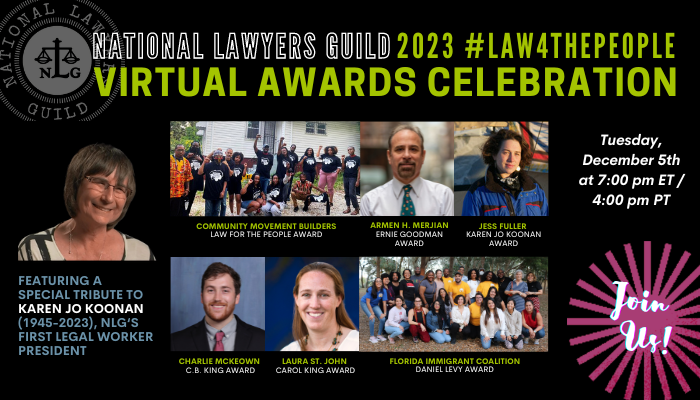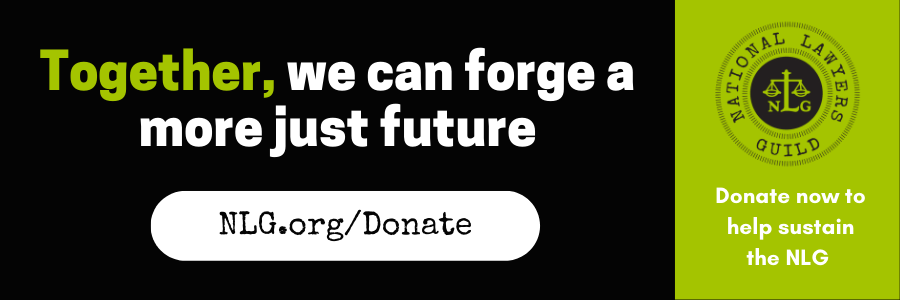 By Crystal Peters
By Crystal Peters
The Center for Popular Democracy is a high-impact national organization that partners with community-based organizations across the country to support their efforts to advance a pro-immigrant, pro-worker, racial justice agenda. Its staff of 50 includes 10 attorneys who provide high-quality legal support to community campaigns on a wide range of issues.
As the sole Racial Justice intern I was responsible for a multitude of tasks that arose in response to and in anticipation of events directly impacting communities of color. However, my primary responsibility was spearheading the Invest/Divest Initiative, which I launched in partnership with a number of CPD’s community-based affiliate organizations, to present a bold and expansive vision for what vibrant, thriving communities should look like. The initiative calls for divestment from the criminalization of Black and brown communities and investment in healthier, community-based alternatives. Despite significant increases in the amount of money spent on policing and incarceration and the continued trend towards increasing numbers of police, there is no evidence that additional police make communities safer. The Invest/Divest Initiative works to develop policy strategies and investments that do in fact make communities safe. These include: investments in education, sustainable infrastructure, and increased access to healthy food, recreation, and opportunity. Each of these investments create jobs, which should also have targeted employment programs for people from affected communities.
I conducted legal research, budgetary and policy analysis to produce a report that looks closely at how key cities spend city, state, and federal funds on education, housing, services for youth and children, and transportation, in comparison to spending on policing and incarceration. Key cities included: St. Louis, Minneapolis, Cleveland, New York, Chicago, Orlando, and Detroit. Budgets are a government’s most direct reflection of its collective values. The ultimate goal of the effort is to make paradigm-shifting policy and budgetary changes at the local, state, and federal levels – changes that will bring policies, programs, and budgets in line with our communities’ values.
I was also the go-to person for not only commentary, but direction in terms of how we would proceed as an organization in response to the great number of issues and incidents that arose this summer. My project was significant in two major ways: (1) it built on the ongoing work of CPD to identify and prioritize policies that curtail the current overreach of the exploitative criminal justice system and also build these opportunities: accessible mental health services, community alternatives to incarceration, reentry and restorative justice services, political education/trainings, educational pipeline. Prior to the commencement of the internship, this is something that CPD desired to undertake, but did not have the capacity to carry through to fruition.
In July, over 1,600 grassroots leaders, organizers, policy makers and artists representing more than 40 people’s organizations from around the country, came together in Pittsburgh, PA for CPD’s first-ever People’s Convention. We came together as people deeply committed to bending the arc of history towards justice together: workers standing up for fair wages, Black and Latino youth fighting for dignity, immigrant parents working to keep our families together, working class people reclaiming our democracy and our planet, and demanding an economy that works for all of us. The convention took place in the context of deep danger for our country and our communities. The painful killing of two Black fathers, Alton Sterling and Philando Castile, highlighted the urgency to build transformative power together.
Additionally, The Movement for Black Lives (M4BL) laid the groundwork for coordinated campaigns aligning policies with community values this summer. Through my internship at CPD, the result of our collective efforts was the release of this platform (see: https://policy.m4bl.org). We received feedback from hundreds of people through surveys, national calls, organizational membership, engaged dozens of other organizations, researchers, and other individuals for their insights and expertise to begin developing a framework for shared policy priorities. It does not include every policy Black people should be working on, but elevates those for which there was shared energy and action in this political moment. For each of the 30+ policies in the document, we included policy briefs to describe the steps that must be taken to further each demand. These briefs include information about whether legislation can happen at the local, state or federal level, information about groups already working on related projects, and resources including model legislation and talking points. I am truly looking forward to seeing some of these demands and campaigns elevated in key cities throughout the country.




